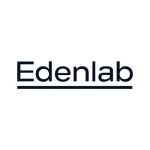What is our primary use case?
I have about 500 volumes that I manage, and I love it.
How has it helped my organization?
It's a good thing to have a reliable storage. Our whole business relies on it. Our two main mission-critical systems, which are EBS system (Oracle Financials) and Banner, which is our database for student services, are stored on NetApp. We need it to be reliable, efficient, and quick, which it is.
They run on AIX and are stored on ONTAP.
What is most valuable?
My experience with NetApp is its very easy to learn and intuitive. I can figure out just about everything.
I love the System Manager. I don't even need to remember commands. I love its ease of use.
What needs improvement?
I wish tech support would be better. I wish I could talk to somebody more easily and qualified, because this is way it is supposed to be. At the moment, you talk to an entry level people, and sometimes they know less than you. You waste two to three hours with them. Finally, they send you to a higher level person who knows something. This is something many companies need to improve.
For how long have I used the solution?
More than five years.
What do I think about the stability of the solution?
It is very reliable. We have not lost one byte of data. There was even an occasion about three months ago where one of my nodes went down. It was recovered and nobody even noticed.
I don't worry about stability. Even when a disc goes bad, I know it will replace itself. NetApp will send me an email, “We'll send you this tomorrow.”
What do I think about the scalability of the solution?
Scalability is very good. Now that we have an AFF A300, it will be even better. You can add more to storage on live. Before, when we had the 3220s, you only had two nodes, so you had to buy another two nodes to scale.
How are customer service and technical support?
Sometimes, tech support is slow to answer. However, I'm seeing this as a trend in all companies, even IBM.
Which solution did I use previously and why did I switch?
I've been using ONTAP for about ten years. I started with the 3140s, then went to the 3240s, and now, I just upgraded to the AFF A300.
How was the initial setup?
I went from an 8.17 node to 9.3 cluster nodes. This was a big change. I still have a lot of things to learn. For example, the migration was done using the 7-Mode migration tool, which was tough.
What about the implementation team?
We used a reseller for NetApp for the deployment. They were good.
What was our ROI?
I have been able to save space using ONTAP, particularly now on the new system. By default, you get compression, deduping, etc. We have saved at least 20 percent in terms of space.
What's my experience with pricing, setup cost, and licensing?
We received a super deal for our new machine, so we were happy with the price.
Which other solutions did I evaluate?
I did not consider anyone else. I love NetApp.
There are some new companies out there, but you take a chance on them. With mission-critical systems, you need a stable company. You cannot play around. NetApp systems will work when things go wrong.
What other advice do I have?
My experience with ONTAP has been very good. It is very reliable.
I might use ONTAP for machine learning. AI. and real-time analytics in the future. Next year will be very interesting as we upgraded to an AFF A300, so that's a new ballgame. I wouldn't mind getting into the cloud.
I am not using NVMe yet. Maybe next year, I will venture into that. I am only using Fibre Channel and iSCSI right now.
Disclosure: My company does not have a business relationship with this vendor other than being a customer.







